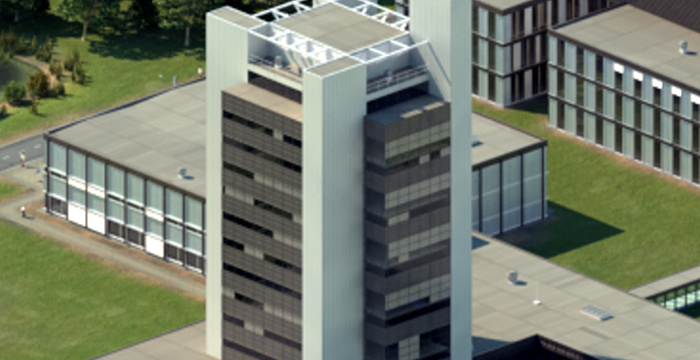Keerthi's research focuses on magneto-caloric heat pump/refrigerator, liquid metal heat transfer fluid, ferrohydrodynamics, and waste heat to electricity conversion. He teaches a graduate course on Hydrogen Technology. He joined the group of Thermal Engineering in 2022 as an Assistant Professor.
1. https://repository.tudelft.nl/islandora/object/uuid%3A0d16a8bb-dcd8-4151-b530-8e0f03e4ef66?collection=education
Expertise
Material Science
- Liquid Metal
Physics
- Refrigerator
- Magnetic Fields
- Frequencies
- Room Temperature
Engineering
- Heat Transfer
- Fluid
- Level Analysis
Organisations
But why work in this when there is already the market dominant technology - Vapor Compression Refrigeration System (VCRS) ?
Well, as with any human creation, things can always be improved. It turns out that the technology development cycle of VCRS has already reached a matured state, no wonder given the enormous amount of scientific and engineering thinking that has been invested in them to keep the humanity cool (though at the cost of warming the environment, a bit) ! In the past century, VCRS has seen many milestones such as: maybe possible --> somewhat possible --> indeed possible --> economically viable --> creating and dominating "refrigeration" market worldwide. It has grown from a laboratory idea to a level where VCRS has an undeniable influence on the economy of many countries. During all these good times, the performance of VCRS was not kept idle. Iit was continuously improved upon, and the recent versions of them can achieve ~ 45 % of Carnot Efficiency.
But the wisdom of humanity says, "all good things must come to an end"; this time it is for VCRS and it is due to (hopefully) presence of more energy efficient ways to keep the humanity cool. One of the "energy efficient ways" is Magnetic Refrigeration (MR). However, in front of VCRS - a civilized 800 pound Gorilla, MR is like a tiny bunny (whom am I to say this ? It is just my perspective :) ). But there are strong indicators that this tiny bunny cannot be ignored any more [1,2].
So where does my work fit in (or at least that I hope to fit into) ?
In the existing MR, the magnetic refrigerant is present as a solid porous structure through which a heat transfer liquid passes through. Due to this arrangement there is a limitation in the heat transfer efficiency. The present work focuses to build a system by using magnetic nanofluids (where the particles are in their super-paramagnetic state ) and to drive it with thermo-magnetic convection thereby avoiding using any mechanical pumps in the system. If this imagination could be engineered, it would result in a maintenance-free, compact, and energy efficient refrigeration system.
But who is going to buy it if it is not affordable ? Well, that has to be accounted for as well when it is engineered.
Does the above idea seems interesting to you and you would like to discuss further, or do you want to check regarding research collaboration ? Feel free to contact me at k.rajamani@utwente.nl
Reference:
1. https://www.aps.org/publications/apsnews/200305/refrigerators.cfm
2. http://www.cooltech-applications.com/
Publications
2024
2023
2022
2021
Other contributions
Conferences:
Keerthivasan Rajamani, Madhu Ganesh, Karthikeyan Paramanandam, Chandiran Jayamurugan, Sridharan R. Narayanan, Balamurugan Srinivasan, and A. Chandra. "Cooling efficiency enhancement using impingement cooling technique for turbine blades." In ASME 2013 Gas Turbine India Conference. American Society of Mechanical Engineers, 2013.
Keerthivasan Rajamani, “Innovative Application of Kinetics for Low-Cost Speed Control System using Linear Cable and Open-Coil Spring”, Paper No. NaCoMM2011-88, 15th National Conference on Machines & Mechanisms, (ISBN 978-81-8487-192-0), December 2011, IIT - Madras, India.
Poster:
Keerthivasan R., Arun K. R., Madhu Ganesh, and Ashok K. L., ”Investigation of concentrated solar power collector with linear discretized Fresnel mirrors in parabolic arrangement”, Poster No.1571, ISHMT-ASTFE International Heat & Mass Transfer Conference, December 2015, Trivandrum, India.
Research profiles
M. Sc. Mechanical Engineering - Energy Technology, Technical University of Delft, The Netherlands.
B. E. Mechanical Engineering (Sandwich), PSG College of Technology, Anna University, India.
Courses academic year 2025/2026
Courses in the current academic year are added at the moment they are finalised in the Osiris system. Therefore it is possible that the list is not yet complete for the whole academic year.
Courses academic year 2024/2025
Interview with 4TU.Energy - Meet our Energizer
https://www.4tu.nl/energy/news/meet-our-energizer-keerthivasan-rajamani/
Joint project with Fraunhofer Innovation Platform for Advanced Manufacturing - Designing and manufacturing regenerators optimised for liquid metal heat transfer
https://fip.utwente.nl/project/maghump/
4TU.Energy grant for Magnetic-Iono Caloric Heat Pump (Univeristy of Twente and TU Delft)
Address

University of Twente
Horst Complex (building no. 20), room N230
De Horst 2
7522 LW Enschede
Netherlands
University of Twente
Horst Complex N230
P.O. Box 217
7500 AE Enschede
Netherlands


